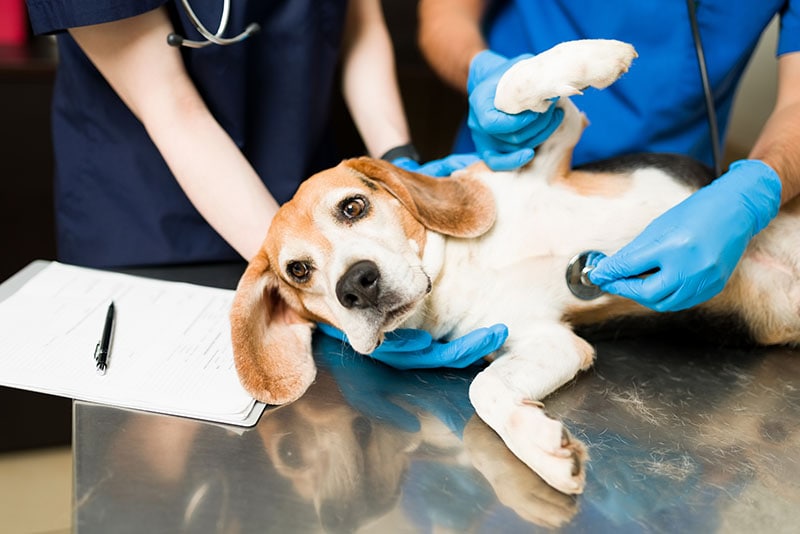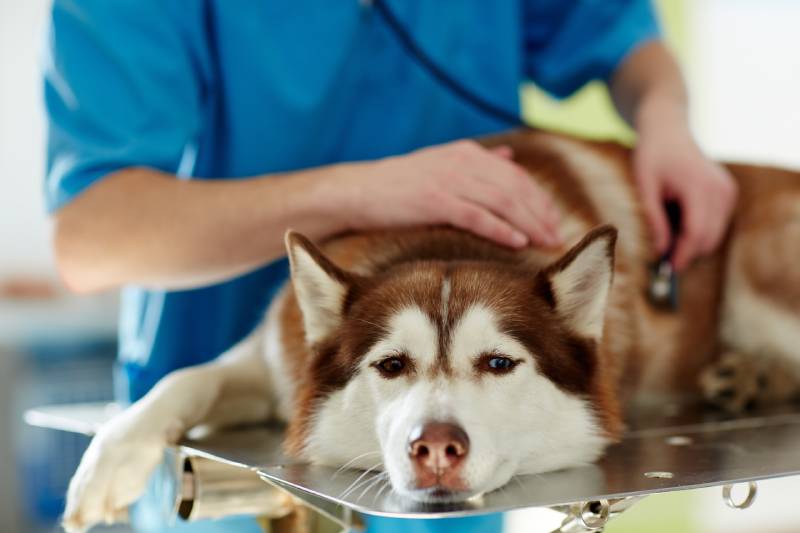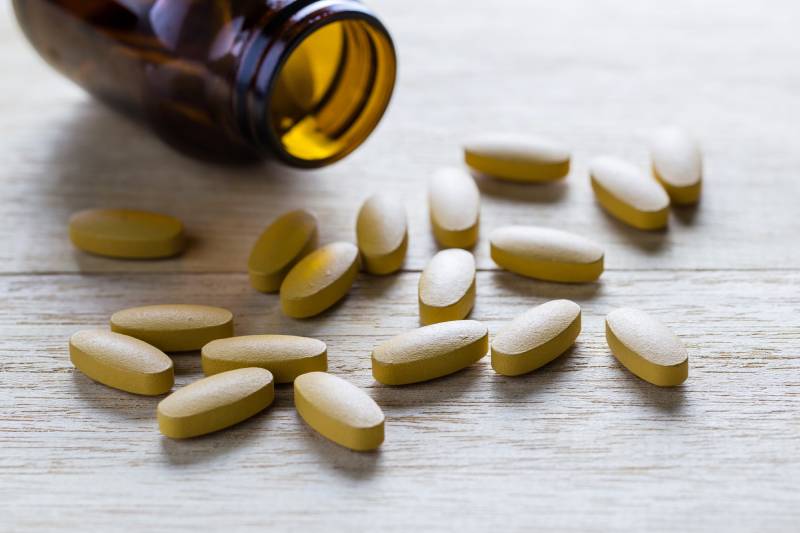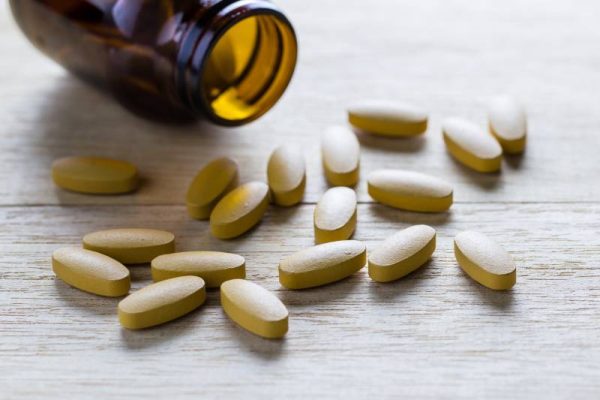As a dog parent, you’re aware that many pups will eat almost anything they find lying out and about. So, you do your best to keep items they shouldn’t eat safely away. But accidents happen, and sometimes your dog will get into something it shouldn’t, like your vitamins.
If your canine companion has consumed some of your vitamins, don’t panic. However, you should be aware that dogs shouldn’t take human vitamins,1 and depending on their age, size, health, type of vitamin, and how much they’ve consumed, will determine how severe the complications may be. So, the immediate step after finding out your pup has taken your vitamins is to call your vet.
What to Do If Your Pup Eats Your Vitamins
As we said, your first step should be to call your vet immediately. Chances are high that your dog will be absolutely fine after eating the vitamin, but if your pet consumed a whole handful of vitamins or certain kinds of vitamins, you could run into issues since vitamin toxicity is a thing. Talking to your vet and letting them know just what your pup has taken and how much, will make a positive outcome much likelier.

Which Vitamins Are Most Toxic to Canines?
Two vitamins in particular can put your pup at risk of vitamin toxicity. Which vitamins are those?
Vitamin D
Many of us take vitamin D supplements because we are deficient in this vitamin due to not spending enough time in the sun. Vitamin D is great for us, but in our dogs, it can be a different story (at least if they consume too much at a time). If your dog eats some of your vitamin D, you could see a lack of appetite, vomiting, and diarrhea. In very high amounts it could cause the calcium levels in your pet’s body to elevate enough to result in kidney damage.
Vitamin A
Vitamin A is an essential vitamin for pretty much everyone, no matter the species, as it helps with growth, reproduction, and more. However, too much of this vitamin can also cause toxicity in dogs. Most often, this doesn’t come from a dog eating an entire bottle of vitamin A; rather, vitamin A poisoning usually occurs when canines are given cod liver oil, raw liver, or other things high in vitamin A consumed consistently over weeks to months.
If vitamin A poisoning does come from a single high dose, you’ll likely see sleepiness, irritability, and vomiting. If it happens due to long-term vitamin A consumption, your pet’s coat and skin will look dry and rough, plus there could be weight loss, constipation, and weakness, limited body movement or pain.


Two Other Things to Watch Out For
The next two things to keep an eye on so your dog doesn’t get sick aren’t vitamins but are often alongside vitamins in supplements.
Iron
Iron can be taken as a supplement, but it’s also found in multivitamins (particularly prenatal vitamins) and it can be very dangerous for our dogs. The signs that dogs can show with iron poisoning range in severity from vomiting , diarrhea, abdominal pain, and lethargy to tremors, seizures, signs of shock and serious effects on the heart and liver. So, it’s vital you keep any vitamin containing iron away from your pet! If they have accidentally ingested any, contact a vet straight away so they can work out if the amount ingested was toxic or not.
Xylitol
Finally, there’s xylitol, an artificial sweetener. In the case of vitamins, you’ll often find this in the chewable kind. Xylitol is toxic for our canine friends even in small amounts. This is because xylitol can cause sudden hypoglycemia in dogs, resulting in lethargy, muscle weakness, and seizures. It may also cause liver damage.


Summing Up
Your dog shouldn’t take your vitamins. But sometimes accidents happen, and your pup may get its paws on some. If your dog has eaten your vitamins, call your vet immediately with a list of the ingredients that the vitamin contained and they will be able to advise you if any urgent action is needed. In many cases, your pup will be fine but vitamin supplements containing vitamins A, D, iron, or those containing xylitol can cause serious problems. The sooner you contact your vet after you notice the vitamin consumption, the higher the chances of a positive outcome.
Featured Image Credit: NT_Studio, Shutterstock











